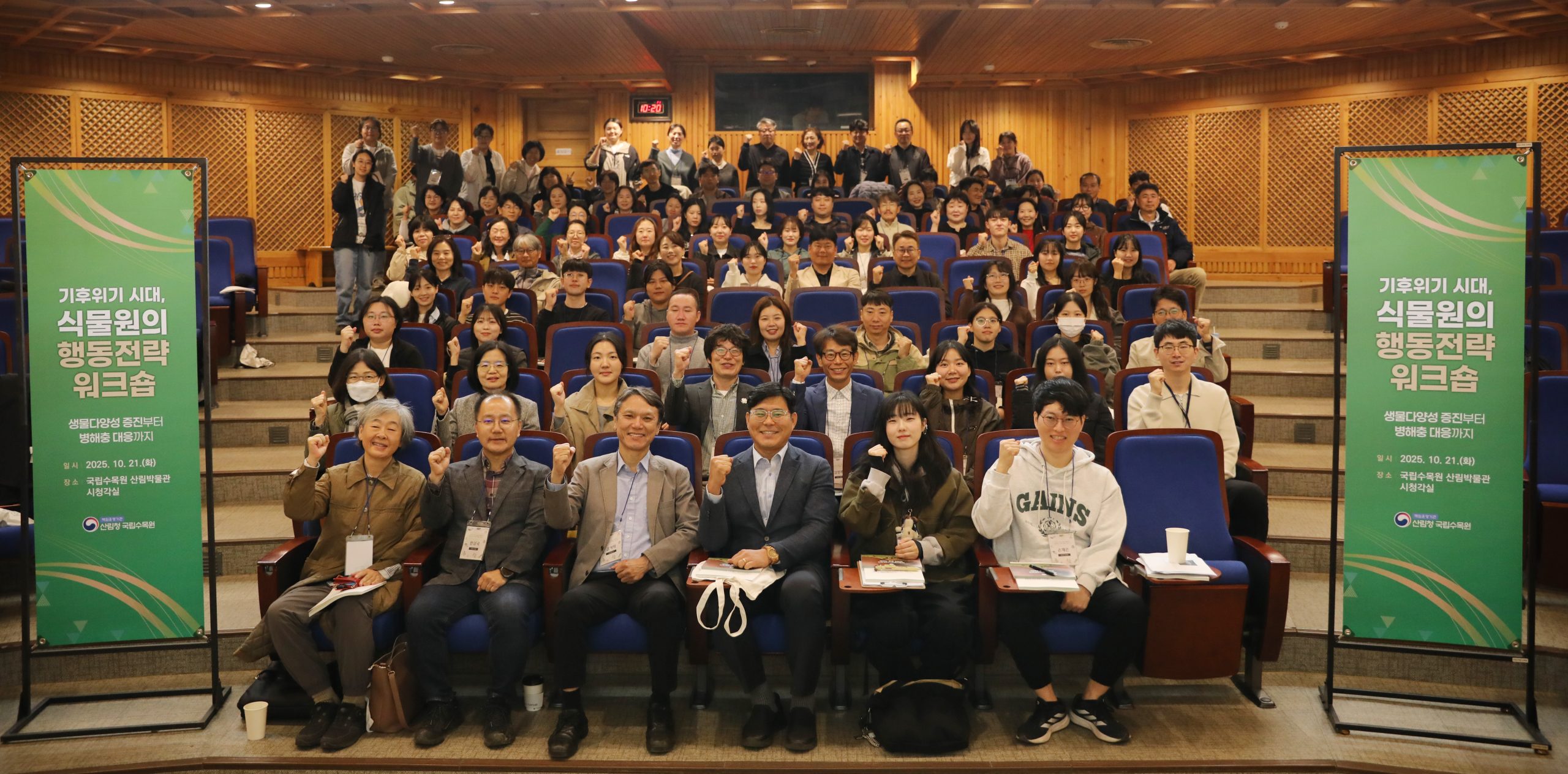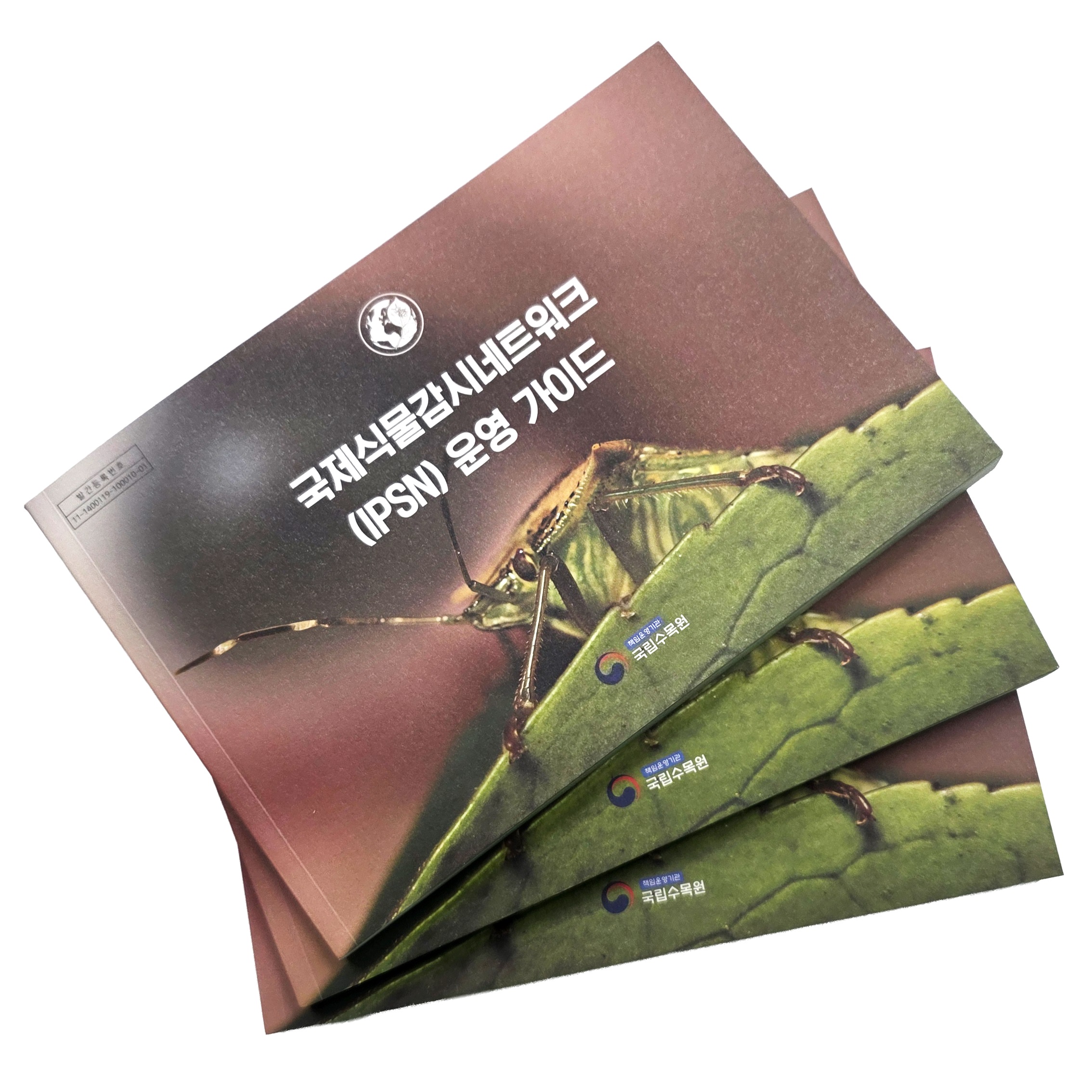Korea National Arboretum Releases Korean Editions of IPSN Guidebook and Hosted the Korea Plant Sentinel Network Workshop
-
Country
South Korea -
Region
Asia -
Programme
ipsn -
Workstream
Saving Plants -
Topic
Tree Conservation -
Type
Press Release -
Source
BGCI Member
News published: 11 November 2025
On October 21, Korea National Arboretum (KNA) held the Korea Plant Sentinel Network (KPSN) Workshop with 170 delegates from 26 botanic gardens and arboreta nationwide to enhance national capacity in monitoring and responding to plant health threats and share Korean editions of the International Plant Sentinel Network (IPSN) Guides and Manuals.

Botanic Gardens and Arboreta: Frontline Defenders Against Pests and Diseases
Botanic gardens and arboreta play a vital role as centres for the collection, exhibition, conservation, and research of diverse plant species. However, because they house many plant species within limited spaces, they are particularly vulnerable to the spread of pests and diseases. With the climate crisis altering growing conditions and giving rise to new diseases, the role of botanic gardens and arboreta has become more crucial than ever. Today, beyond their traditional roles of plant exhibition and education, botanic gardens and arboreta now stand at the forefront of efforts to safeguard the health and resilience of global plant resources, helping to detect, monitor and mitigate threats before they spread more widely.
Recognizing this critical need, BGCI launched the International Plant Sentinel Network (IPSN) in 2013. IPSN facilitates global collaboration by sharing information on pests and diseases, supporting coordinated identification, prevention, and rapid response efforts across its member institutions.
KNA Establishes the Korea Plant Sentinel Network and Publishes Korean Editions of the IPSN Guides and Manuals
In line with global trends in plant health management, KNA established the Korea Plant Sentinel Network (KPSN) in 2024, in collaboration with botanic gardens and arboreta nationwide. The network aims to strengthen early detection and response to plant pests and diseases through continuous monitoring and information sharing. KNA also hosts annual workshops to exchange data on emerging plant pests and diseases, helping to enhance the diagnostic and management capabilities of participating institutions. This year, KNA published the Korean editions of the IPSN Guides and Manuals, designed to support the monitoring and identification of plant health issues in accordance with global standards. The guidebook covers a wide range of topics, including global trends in garden management, plant health checklists, examples of major pests and diseases, methods of photographing and documenting affected plants, as well as best practices in garden management and biosecurity.
By adopting this guidebook, KNA aims to establish a solid foundation for investigating, recording, and sharing pest and disease information using a standardized international approach, thereby contributing to global plant health protection efforts.

KNA Aims to Build an International Plant Health Management System in Korea
Youngsuk Im, Director-General of KNA, stated, “the Korean editions of the IPSN Guides and Manuals are expected to raise awareness of plant pests and diseases, while strengthening our capacity for early detection and preparedness. Through the KPSN, we will continue to advance Korea’s plant pest and disease response system, ensuring that our nation’s healthy plant resources are preserved and passed on to future generations.”
BGCI Member Announcement
Are you a BGCI Member? Do you have a news announcement, event, or job posting that you would like to advertise? Complete the form at the link below!
Support BGCI
You can support our plant conservation efforts by sponsoring membership for small botanic gardens, contributing to the Global Botanic Garden Fund, and more!